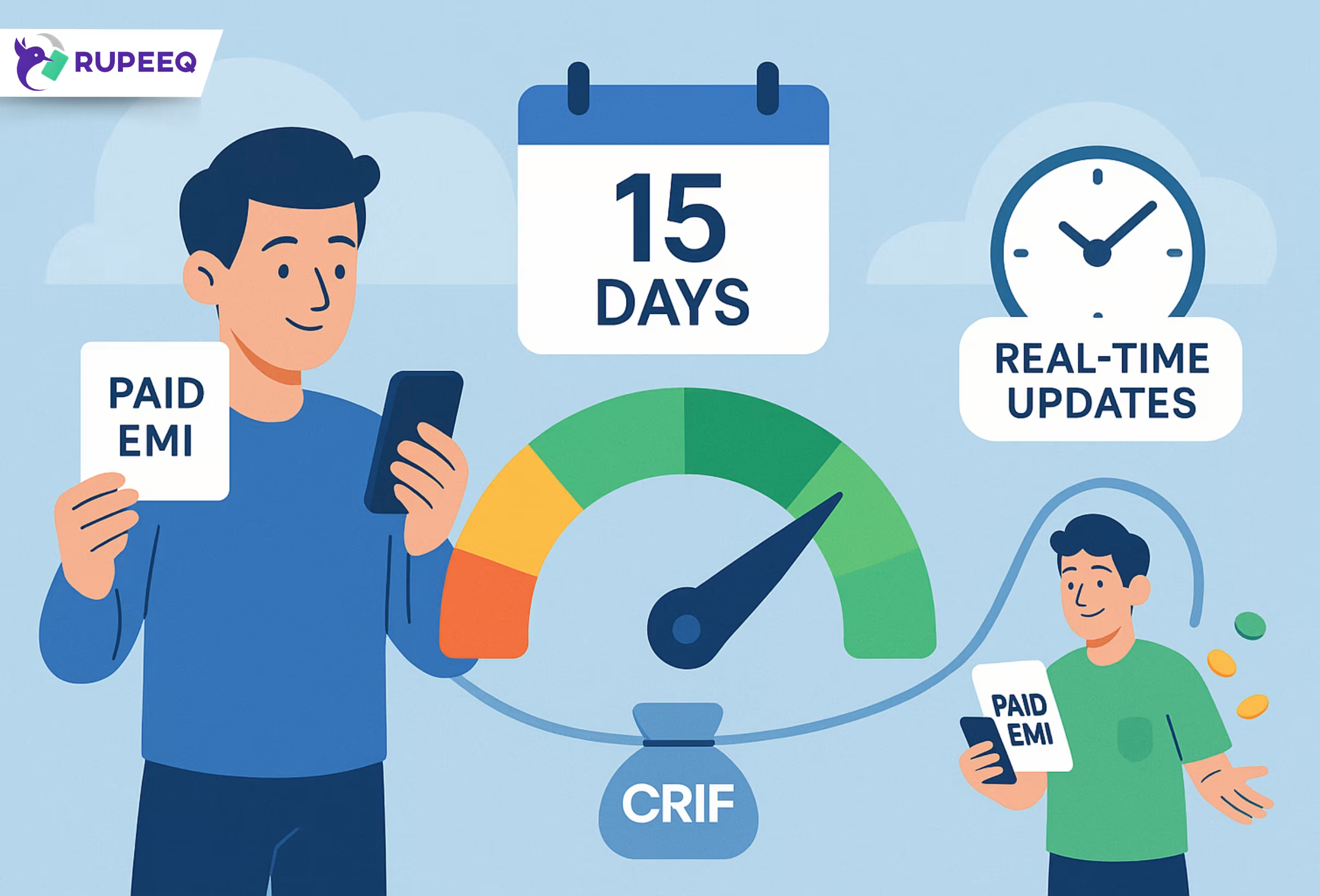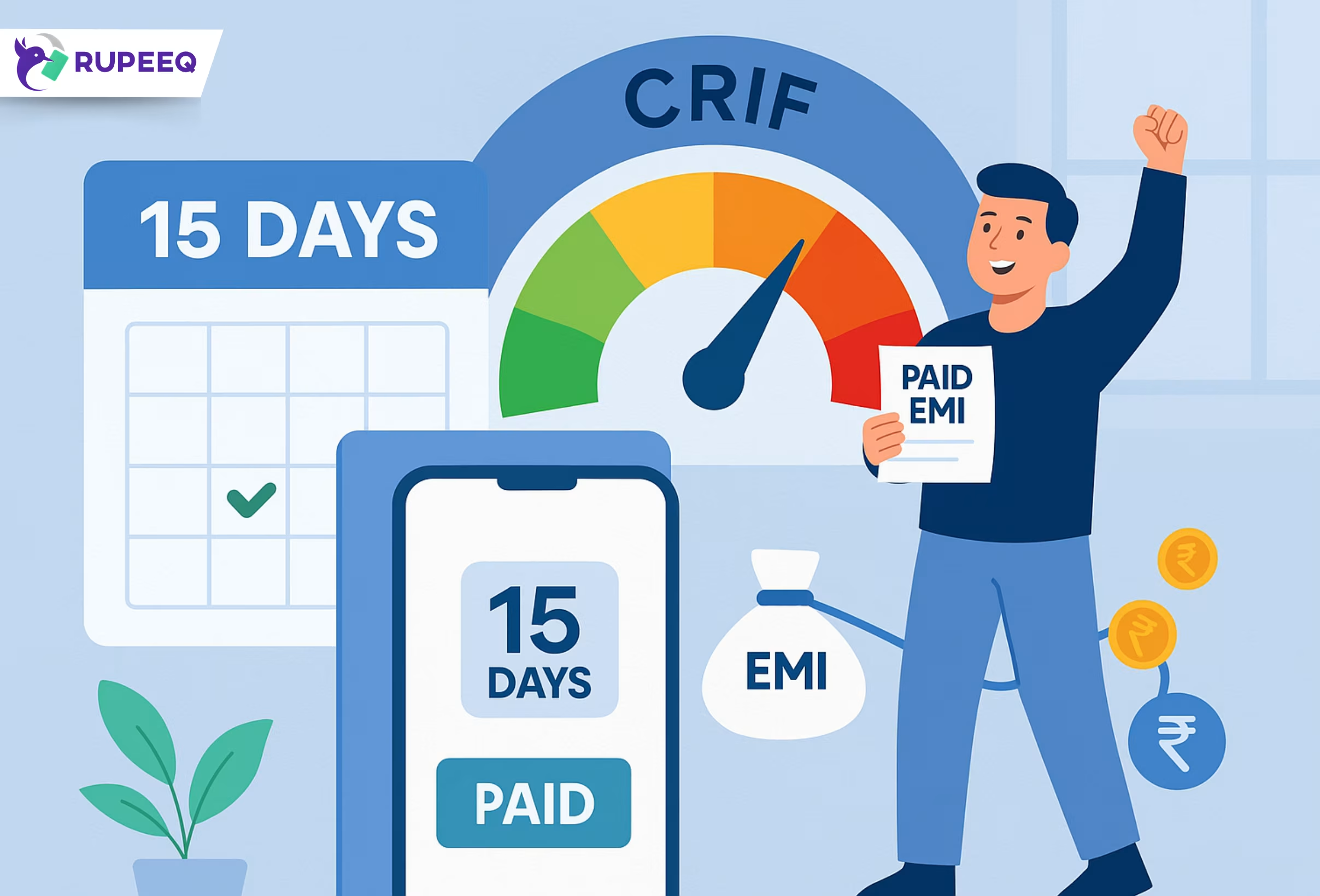If you’re a first-time borrower, you might find it challenging to get approved for a personal loan, credit card, or home loan due to a lack of credit history. Lenders evaluate your credit score to determine your ability to repay debts, and without any borrowing record, your credit profile remains invisible to banks and financial institutions.
However, the good news is that building a strong credit score from scratch is entirely possible. By following the right financial habits, you can establish creditworthiness, improve loan eligibility, and secure better interest rates in the future.
In this blog, we’ll cover why credit score matters, how first-time borrowers can start building their credit, and expert tips from RupeeQ to fast-track their credit health.
Why a Good Credit Score Matters for First-Time Borrowers
A credit score is a three-digit number (ranging from 300 to 900) that reflects your creditworthiness. It is assigned by credit bureaus like CIBIL, Experian, Equifax, and CRIF High Mark based on your credit usage and repayment history.
A higher score (750+) increases your chances of loan approvals and lower interest rates, while a low or non-existent score can lead to loan rejection or high-interest rates.
How Lenders View Your Credit Score
| Credit Score Range | Creditworthiness | Loan Approval Chances |
| 750 – 900 | Excellent | High chances of approval at the best interest rates |
| 650 – 749 | Good | Loan approval possible, but rates may be slightly higher |
| 550 – 649 | Fair | Lenders may hesitate or charge higher interest rates |
| Below 550 | Poor | High risk of rejection or unfavorable loan terms |
| No Credit Score | No Credit History | Lenders cannot assess risk, making approvals difficult |
RupeeQ Tip – First-time borrowers should start building their credit score at least six months before applying for a major loan to improve their eligibility and secure better loan offers.
How to Build Your Credit Score as a First-Time Borrower
If you have never borrowed before, your credit profile is blank, and lenders have no history to assess your repayment behavior. Here’s how you can start building a credit score from scratch.
Get a Secured Credit Card to Start Your Credit Journey
A secured credit card is the easiest way for first-time borrowers to build credit. These cards are issued against a fixed deposit (FD) and function like regular credit cards.
- Use it for small purchases every month.
- Ensure full repayment before the due date to establish a good repayment history.
Example
Rohit, a first-time borrower, got a secured credit card against an FD of ₹25,000. By spending ₹5,000 per month and paying in full, his credit score increased from 0 to 720 in six months.
Apply for a Low-Credit-Limit Credit Card
Many banks and fintech companies offer credit cards for first-time users with a low credit limit. These are great for building credit history gradually.
- Keep your credit utilization ratio below 30% to maintain a healthy score.
- Always pay bills on time to avoid negative marks on your credit report.
Example
Neha, a first-time borrower, got a credit card with a limit of ₹30,000. She used ₹6,000 per month and paid the bill in full. Her credit score reached 740 within a year.
Take a Small Personal Loan and Repay It Timely
Taking a small-ticket personal loan (₹25,000 to ₹50,000) and repaying it consistently can help build a strong repayment history.
- Choose a short tenure (6–12 months) for a quicker impact on your credit score.
- Avoid missing even a single EMI, as late payments negatively affect your score.
Example
Amit took a ₹40,000 personal loan for six months and repaid all EMIs on time. Within eight months, his credit score improved to 730, making him eligible for larger loans.
Opt for a Credit Line Instead of Multiple Loans
Instead of applying for multiple loans, a credit line allows you to borrow flexibly without a high credit utilization ratio.
- Borrow small amounts as needed and repay them quickly.
- Keep utilization below 30% of the approved limit to maintain a good score.
Example
Karan got a ₹50,000 credit line and used ₹10,000 for emergency expenses. By repaying within a month, he maintained a low CUR and improved his credit score.
Pay Bills on Time – No Late Payments
Payment history makes up 35% of your credit score. Even a single late payment can cause a drop of 50–100 points.
- Set up auto-pay for credit cards and loans to avoid missed payments.
- Pay at least the minimum due amount if you cannot pay in full.
Example
Ravi missed a ₹2,000 credit card payment, which caused his credit score to drop from 710 to 660 in one month.
Avoid Applying for Too Many Loans at Once
Every loan application triggers a hard inquiry on your credit report, reducing your score. Multiple inquiries in a short period make lenders perceive you as credit-hungry.
- Apply only for one loan or credit card at a time.
- Wait at least six months before applying for another credit product.
Example
Simran applied for three credit cards in one month and her score dropped by 40 points due to multiple inquiries.
Monitor Your Credit Score Regularly and Correct Errors
Check your credit score every month and dispute any errors in your report, such as:
- Incorrect loan or credit card details.
- Payments marked as overdue when paid on time.
- Unrecognized loan accounts (possible fraud).
Example
Priya found a wrong overdue loan entry on her credit report. After raising a dispute with the credit bureau, it was corrected, and her score increased by 50 points.
How Long Does It Take to Build a Credit Score?
For first-time borrowers, it takes at least three to six months to generate a credit score. A strong score (750+) may take up to a year of responsible credit usage.
| Timeframe | Credit Score Impact |
| 3–6 months | Initial score generation (650–700) |
| 6–12 months | Moderate credit improvement (700–750) |
| 12+ months | Strong credit score (750–800) |
RupeeQ Tip – If you plan to take a home loan or car loan in the future, start building your credit score at least a year in advance for the best loan terms.
Final Thoughts on Building Your Credit Score
A strong credit score helps you get better loan approvals, lower interest rates, and higher credit limits. First-time borrowers can improve their credit profile by:
- Getting a secured or low-limit credit card.
- Keeping credit utilization below 30%.
- Taking a small personal loan and repaying on time.
- Avoiding multiple loan applications.
- Monitoring credit reports for errors and correcting them.
By following these steps, you can establish a strong credit profile and unlock better financial opportunities in the future.







